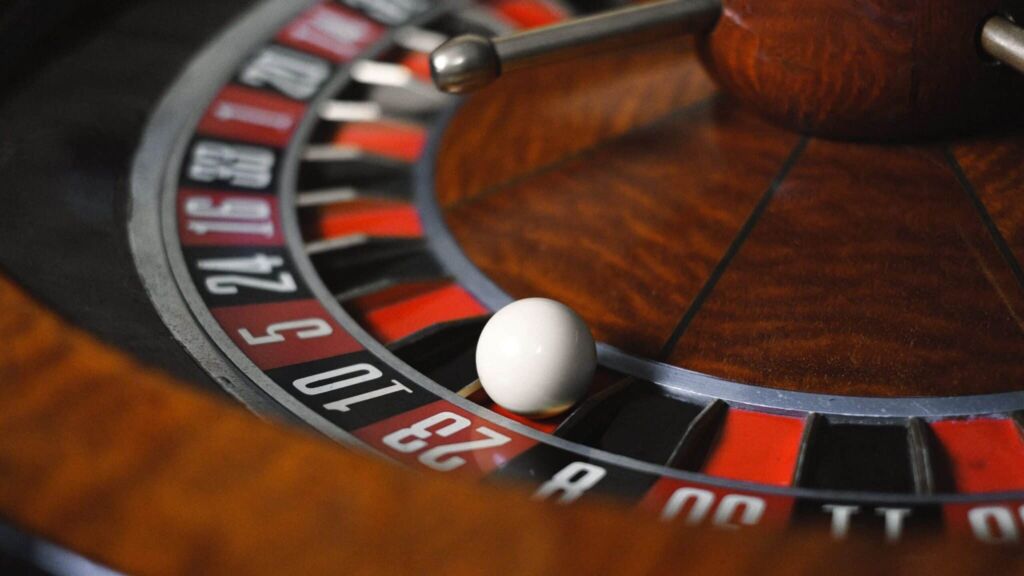Gambling has been a long-lasting aspect of human society, present in various forms since the start of human civilization. Activities ranging from early dice games in ancient Mesopotamia to the structured gambling practices of the Roman era demonstrate how societies have been captivated by chance throughout history.
Mesopotamian Beginnings: The Early Use of Dice in the Birthplace of Civilization
Known as the cradle of civilization, Mesopotamia offers early indications of gambling activities via archaeological finds that date back over 5,000 years . Discoveries from ancient sites in Iran reveal early dice made from natural resources such as knucklebones or crafted from materials like bone and ivory, showing how early humans engaged with games of chance.
In Mesopotamia, these primitive dice held more than mere amusement value; they were deeply significant, tied to rituals and divination interpretations, where dice outcomes were seen as divine signals. The Royal Game of Ur, notable for its use during the Early Dynastic era ( 2600-2400 BC ), involved complex strategy and chance elements, indicating gambling’s societal significance, even among the elite.
Ancient Egyptian Pastimes: The Symbolic Game of Senet and Fate’s Attraction
Gambling was entrenched in everyday life of ancient Egyptians, enjoyed by everyone from rulers to the common populace. The board game Senet evolved beyond a pastime, carrying deep religious symbolism and significance, with its origins traced back to pre-dynastic burials around 3500 BCE . The game became an iconic representation of fate and life’s unpredictability.
More than a mere test of skill and luck, playing Senet symbolized a spiritual journey through the afterlife. Its board squares embodied religious ideas, and victory was interpreted as a glimpse into one's afterlife fortune. While definitive betting evidence is sparse, the game’s extensive cultural reach hints at a natural affinity with gambling.
Greek Heritage: The Interaction of Mythology, Oracles, and Urbanization
Gambling held a complex and sometimes contradictory role in ancient Greece, the birthplace of both democracy and philosophical thought. Greek mythology includes numerous tales of gods and heroes using chance to resolve disputes, with the drawing of lots being a theme. Oracles like Delphi emphasized the view that fate could be predicted through random events.
Dice games, or kubeia, were embraced across Greek society in public settings and private gatherings. Ancient texts by writers like Plato and Sophocles frequently referenced gambling, often imbued with moral teachings. Though some philosophers viewed gambling skeptically, its popularity endured, encouraged by the rise of city-states. Archaeological evidence supports its widespread nature, highlighting its role as both entertainment and social activity.
Roman Expansion: Gambling’s Flourishing in the Empire
The Roman Empire, with its extensive reach and organizational prowess, wholeheartedly embraced gambling. From public dice games and dramatic betting on chariot races to early forms of lotteries, gambling was a pervasive element across all social classes, even under restrictive laws of the time. Gambling was part of daily life in bathhouses and private homes, where legislation struggled to curb its popularity.
Despite regulations, gambling flourished, both in private settings and emerging public venues. Massive structures like the Colosseum created new spaces for spectators, making way for grand public wagers. Gambling was so integral that even a famous phrase by Julius Caesar, “alea iacta est” (“the die is cast”), became synonymous with betting and the acceptance of irreversible outcomes.
Chinese Innovations: Early Gambling and the Philosophical Underpinnings
In ancient China, evidence of gambling dates back to the Shang Dynasty ( c. 1600-1046 BC ), developing into popular pastimes by the Han Dynasty. Games involving dice, tiles, and early card formats exemplify the developing gaming culture, influenced by the country’s philosophical landscape.
Among Chinese gambling’s key legacies is the possible origin of Keno, linked to legend but reflective of early lottery systems used for public funding. The creation of Dominoes dates back to various dynastic periods, grounded in cultural tradition. Chinese philosophies, especially the I Ching, contributed to the cultural perspective of chance and destiny, fostering gambling’s acceptance as a social activity.
The Lasting Impact of Gambling: Lessons from Early Civilizations
Gambling’s widespread presence across ancient cultures highlights its timeless allure to human instincts. Be it seen as divine interpretation, an anticipation of destiny, or a social diversion, gambling has historically held significant roles within societies. Exploring its ancient roots provides deeper understanding of the pervasive social, psychological, and economic factors that continue to make gambling a universal human pursuit.
In ancient Mesopotamia and Egypt, gambling was interwoven with divination, reflecting early beliefs that chance had a mystical aspect, possibly shaped by otherworldly influences. This gave gambling a sense of universal importance, beyond mere leisure. Meanwhile, in Greece and Rome, gambling emerged as a social activity enhancing community ties, showing that it was more than a solitary hobby but a collective tradition that mirrored societal interactions. Additionally, in both the Roman Empire and ancient China, gambling played a vital economic role, generating wealth and even funding governmental projects, hinting at the longstanding interplay between gambling and economic needs.
Exploring the Historical Context of Ancient Gambling Practices
To gain further insight into gambling in early cultures, we can examine detailed examples:
Example Study 1: The Use of Dice for Divination in Ancient Assyria
Numerous dice were uncovered at Assyrian sites such as Nineveh and Nimrud, often within religious temples, revealing their use by priests to seek divine guidance. The outcome of dice throws was interpreted through complex numerical and symbolic systems. An example of this practice, 'astragalomancy,' involved reading dice patterns tied to gods, illustrating how games of chance were a conduit for communicating with the divine.
Example Study 2: The Role of Lotteries in Roman Economic Practices
While contemporary lotteries are often government-run to increase funds, their concept dates back to the Roman era. Initially linked to public celebrations, they evolved into private ventures, with Emperor Augustus famously utilizing lotteries to sponsor public projects. Though not as organized as today's versions, these early lotteries demonstrated how the Romans saw the potential of games of chance for public and personal financial gain.
Example Study 3: Gambling and Social Dynamics in Ancient India
Ancient Indian lore, like the Rigveda and Mahabharata, reveals the dual nature of gambling in their society—viewed as both perilous if excessive and an entrenched pastime. Despite warnings in scriptures, historical and archaeological evidence shows dice games were widespread, hinting at how gambling impacted social standing and was accepted despite moral reservations.
Psychological and Social Reasons Behind Ancient Gambling Habits
To understand why gambling thrived in ancient times, we need to explore the psychological and social drivers behind it:
- The Fascination with Chance and Destiny: In unpredictable ancient societies, gambling allowed people to directly engage with chance, mirroring life's uncertainties where fortunes could shift swiftly.
- Leisure and Community Engagement: Serving as entertainment, gambling brought people together, fostering social interactions and competition, fulfilling a key social function where leisure options were scarce.
- Financial Ambitions and Risk Appetite: Gambling provided a route to potential wealth, appealing to those dreaming of improved social standing, while encouraging risk-taking as a perceived sign of bravery or status.
- Spiritual and Mystical Practices: Like in Mesopotamia and Egypt, gambling intertwined with religious ceremonies; dice in divination and games like Senet held spiritual significance, linking players to supernatural realms.
Reflecting on Ancient Gambling Traditions
The essence of ancient gambling practices still echoes today. Despite changes in form, from rudimentary dice games to sophisticated online gambling, the fundamental appeal remains. People are driven by the thrill of the unknown, hope for gains, social interactions, and engagement with fate. By studying these ancient practices, we better appreciate the intricate history and enduring appeal of gambling, offering context for modern discussions on its regulation and impact.
External Resources:



